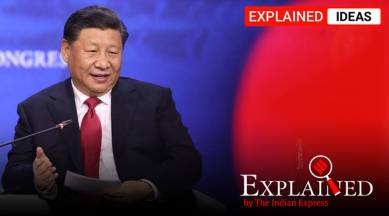Explained Ideas: Why China’s rise could spell the end of the Asian century
C Raja Mohan says China’s hegemonic ambitions, that it has become much more powerful than its neighbours, mean that Beijing’s focus is now on building Chinese century.

China once used to talk about the “Asian century”. Its current focus is on building the “Chinese century”. But C Raja Mohan, Director, Institute of South Asian Studies, National University of Singapore and contributing editor on international affairs for The Indian Express, reminds the readers that “the deepening conflict between India and China is bound to complicate the prospects for an Asian century, as well as the Chinese century”.
But he cautions: “As China privileges nationalism, it is bound to compel its Asian neighbours to do the same”.
monthly limit of free stories.
with an Express account.
The idea of Asian unity was among the many transcendental political notions that emerged in the late-19th and early-20th centuries as the eastern civilisations struggled to rediscover themselves amidst the domination of the West.
“The current president of China, Xi Jinping continues to talk about Asian unity. But for a very different purpose. For Deng, Asian unity was central to his strategy of rebuilding China. At home, he was determined to heal the scars from Mao’s blood-letting under the Cultural Revolution that lasted from the mid-1960s to the 1970s. Deng also put an end to Mao’s external adventurism that destabilised the neighbouring states in the name of promoting revolution…Deng rightly saw peace on its frontiers and cooperation with the rest of the world as a precondition for modernising China,” he says.
“Xi has a very different objective. He is leading a country that has emerged as a great power, thanks to the sweeping reforms under Deng. For Xi, Asian unity is about getting Beijing’s neighbours to acquiesce in China’s regional primacy”.
However, Raja Mohan points out, it is in an unfortunate paradox that the phenomenal rise of China may have created the very conditions for the demise of the Asian century. “That China has become far more powerful than all of its Asian neighbours has meant Beijing no longer sees the need to evoke Asian unity”.
But if powerful nationalism is driving China to seek more territory from its neighbours and dominate the region, equally intense nationalist forces in Asia will react against CCP’s assertive policies, he argues.
“To be sure, an India that is smaller in economic size than China will pay a price for being the first to challenge the Chinese century. But Delhi may be strong enough to extract a cost from Beijing which is discounting the enormous power of the nationalist sentiment that the CCP is unleashing in China’s neighbourhood,” he concludes.